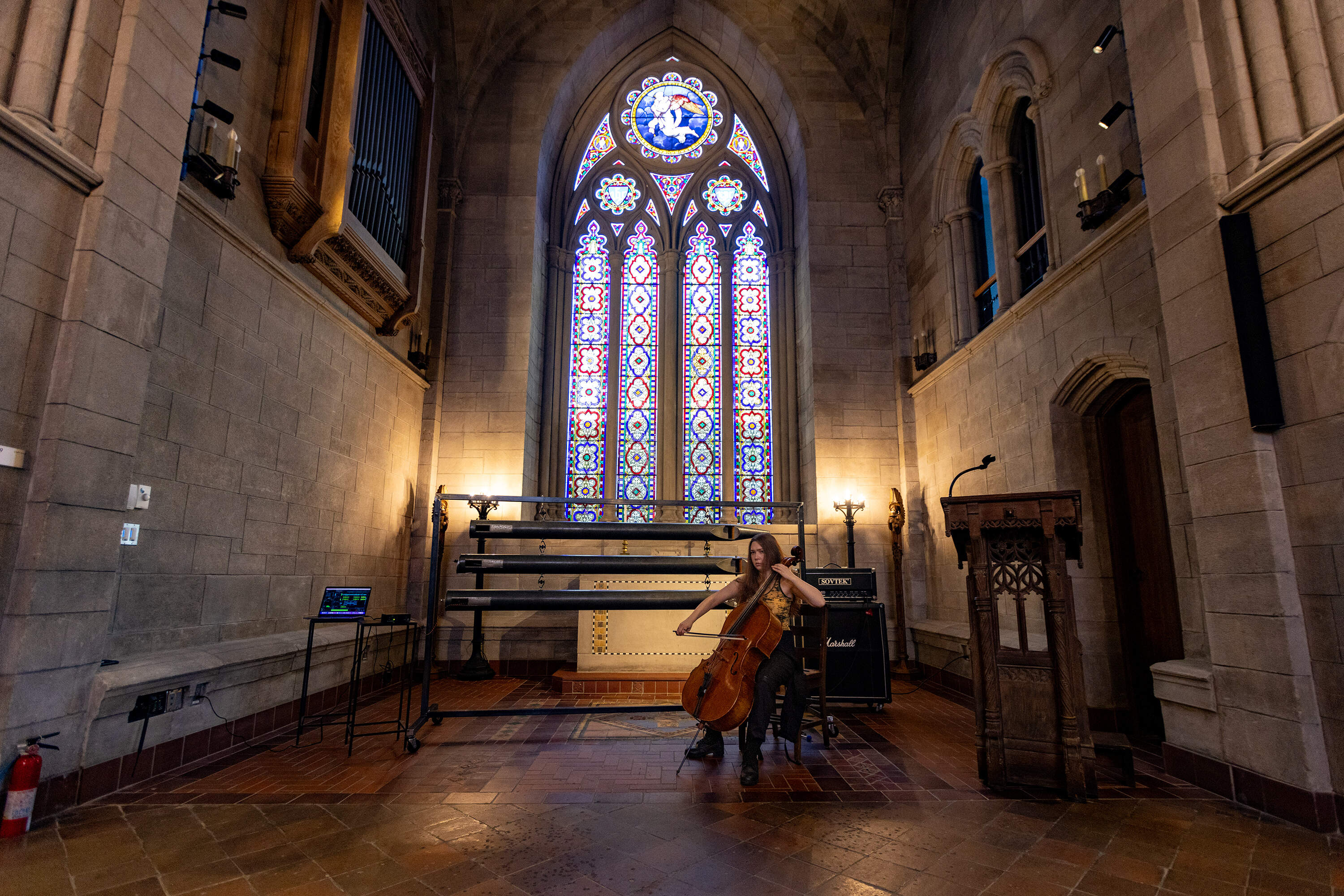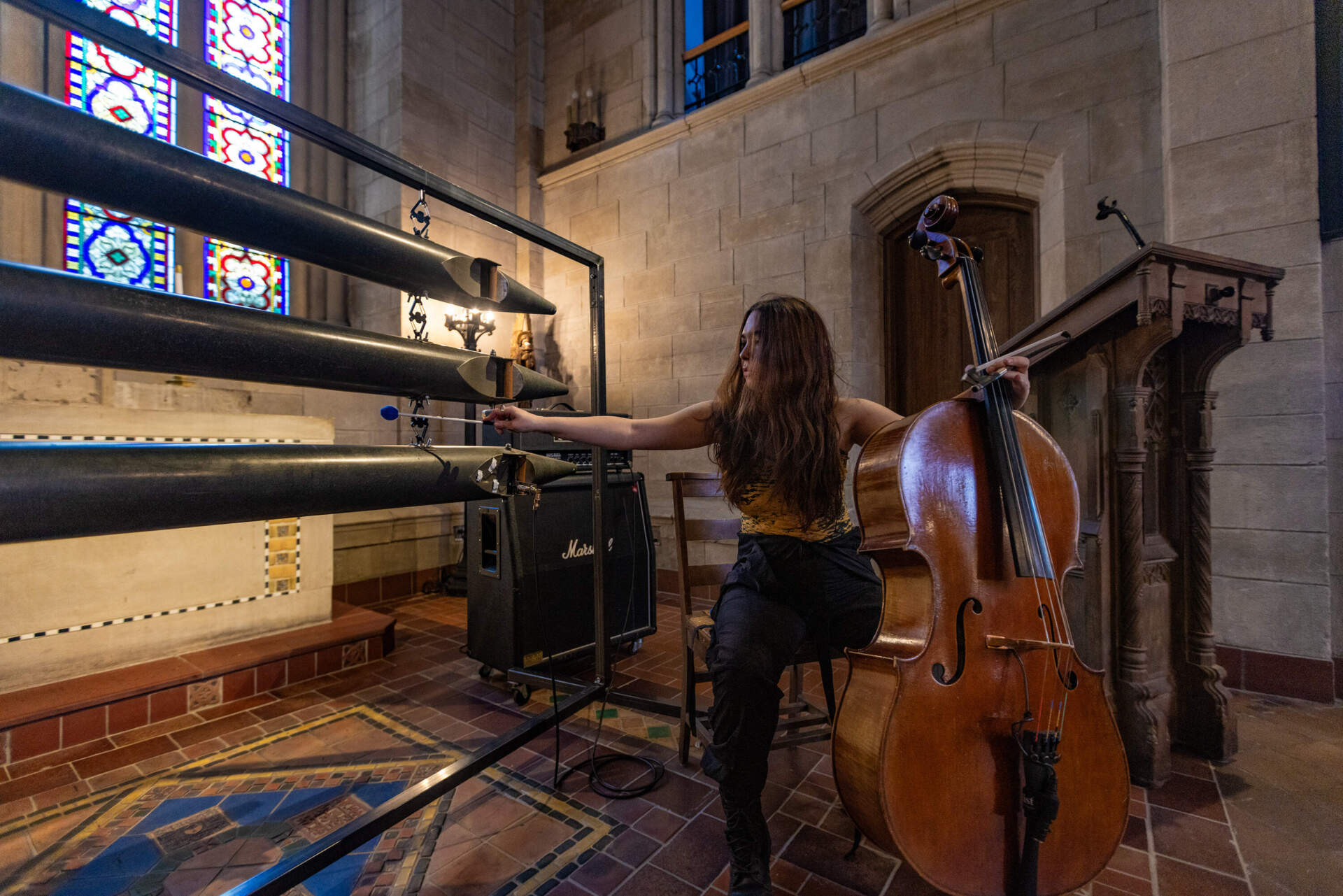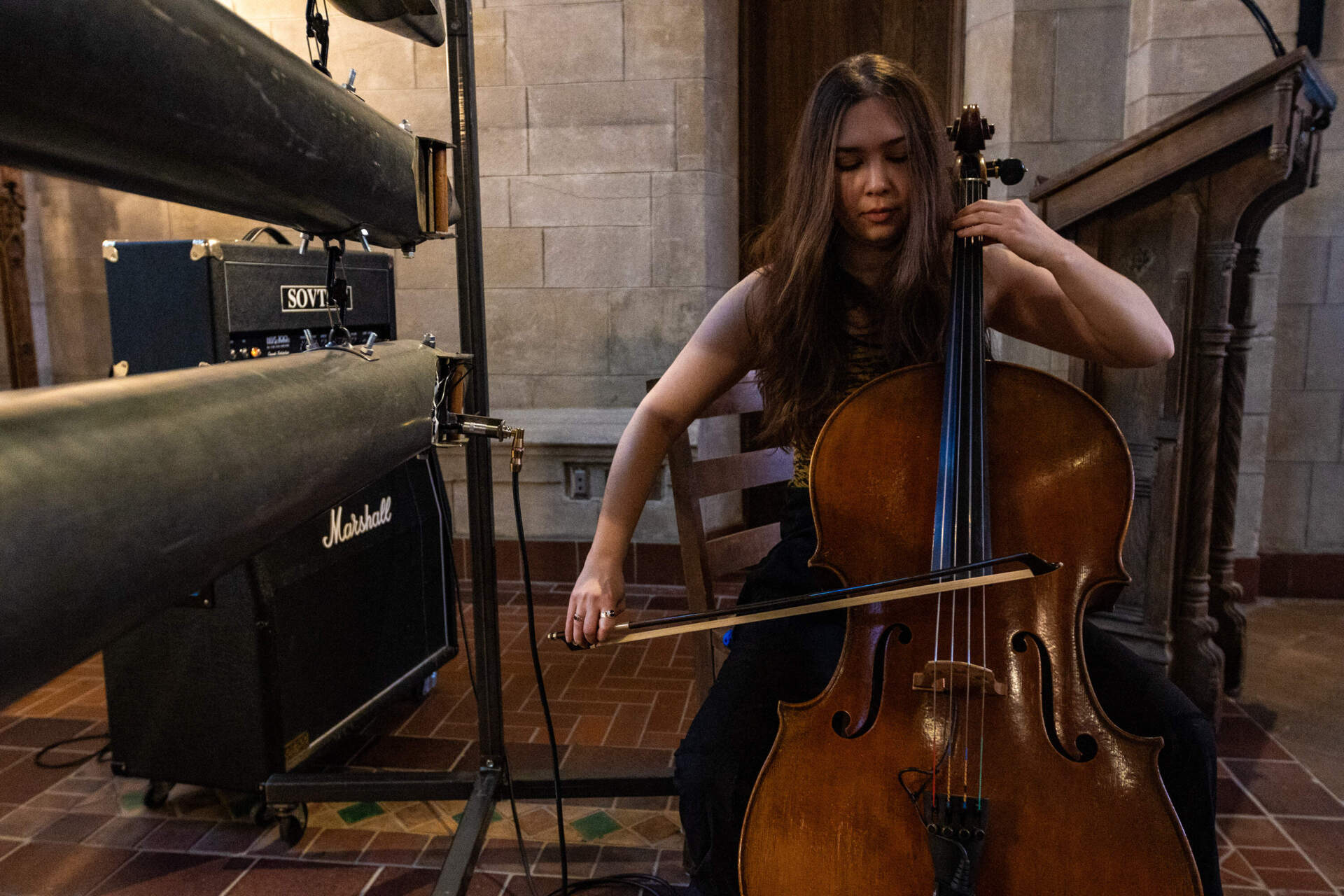Advertisement
A musician's invitation to meditate on death at Mount Auburn Cemetery

In December 2022, musician Eden Rayz received a message from her friend Roy Hawes about a defunct pipe organ at Mount Auburn Cemetery that was being decommissioned and needed to be picked up, or it would be trashed.
“I decided to take — on a whim — hundreds and hundreds of pipes and just put them in my house," she said. “I had no idea how a pipe organ worked. I knew I liked pipe organ music and knew some performers, but I had not an inkling of what this would become. It was just a gut, split-second decision to leave and get it.”
She ended up collaborating with metalworker Willy Blass at Iron Geist Studios to construct “Argent and Sable,” an 8-foot-long electronic instrument made out of the discarded organ pipes. As an artist-in-residence at the cemetery, Rayz will perform a death meditation called “Nothingness is Impossible” on March 23 at the Story Chapel with end-of-life support person Ripley to narrate the event, focusing on climate grief, the Anthropocene, death of the self and those around us, decay and rebirth. Rayz previously conducted a meditation last fall, where she also played the synthesizer-like instrument.
During the event, attendees are encouraged to make themselves comfortable in the chapel by bringing pillows, blankets and mats. The event will start with a 10-minute induction meditation to acclimate people to the space. The main meditation, featuring Rayz playing "Argent and Sable" and Ripley orating, will begin shortly after, lasting 20 to 25 minutes. When the meditation concludes, people will have the opportunity to discuss their experiences and perspectives.

"Argent and Sable" lends to the reflective atmosphere, anchoring the experience. “It's a very unique, singular sound,” she said. “It can be very ethereal and very beautiful. It can sound lyrical. It can sound like animals and birds. And it can also be incredibly abrasive. And very strident and cacophonous.”
A collection of samples that Rayz pulled from her cello performance, voice, bird song, heartbeats and breathing will be processed through the instrument. Rayz said she was thinking about the process of confronting death when creating her meditations.
“I wanted to see how I could use sound and how I could use my new instrument and my cello in order to provide that kind of confrontation to the community in a way that they could be held in space ... go through what they need to go through in a healthy way,” she said. “What we found was this paradoxical joy.”
Death meditations are just one part of the death-positive movement, according to Rayz. “It's so toxic that our culture has rejected death, which is one of the most simple realities of being a mortal person in favor of this very sanitized, unhealthy view of it, where it can really hurt people that need to grieve in their own way."
Advertisement

In a 2017 article for Undark, anthropologist Anita Hannig wrote that American culture has viewed death as a failure, rather than a natural and inevitable part of life. The death-positive movement has made strides to combat the fear of speaking openly and honestly about death. At Mount Auburn Cemetery, organizers have previously facilitated these discussions with death cafes — events where people gather to have conversations about death.
Ripley said there are benefits to discussing death collectively. “We have, as people, been dissociated from not just death, but also community,” they said. “By helping others and being part of something with others, you are helping yourself and you are nurturing yourself.”
Known as maranasati, death meditations have a lengthy history rooted in Tibetan Buddhism. Ripley said that while traditional death meditations may focus on the physical experience of decomposition and dying, the death meditation they lead with Rayz focuses more on “death in the life cycles that are connected to the planet that we live on.”
Falling four days after the first day of spring, the upcoming death meditation will take on a transformative and contemplative nature.
“Spring equinox is when we're going to be, hopefully, seeing so much coming back to life here at the cemetery,” Rayz said. “In that collective relaxation, one can be more open to different perceptions and realities and can look at the really dark stuff, the stuff that can be traumatic in an environment that's more human.”
